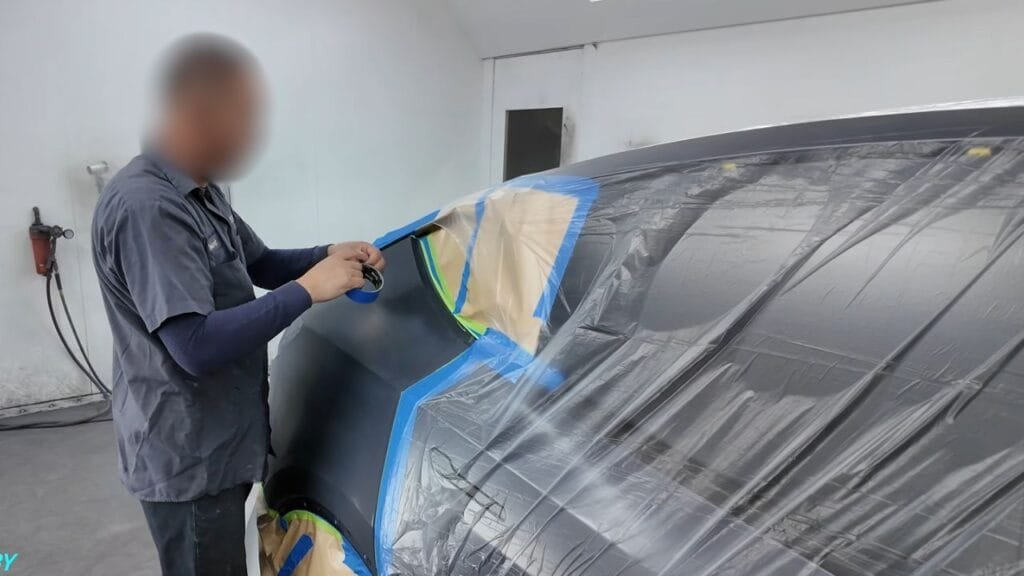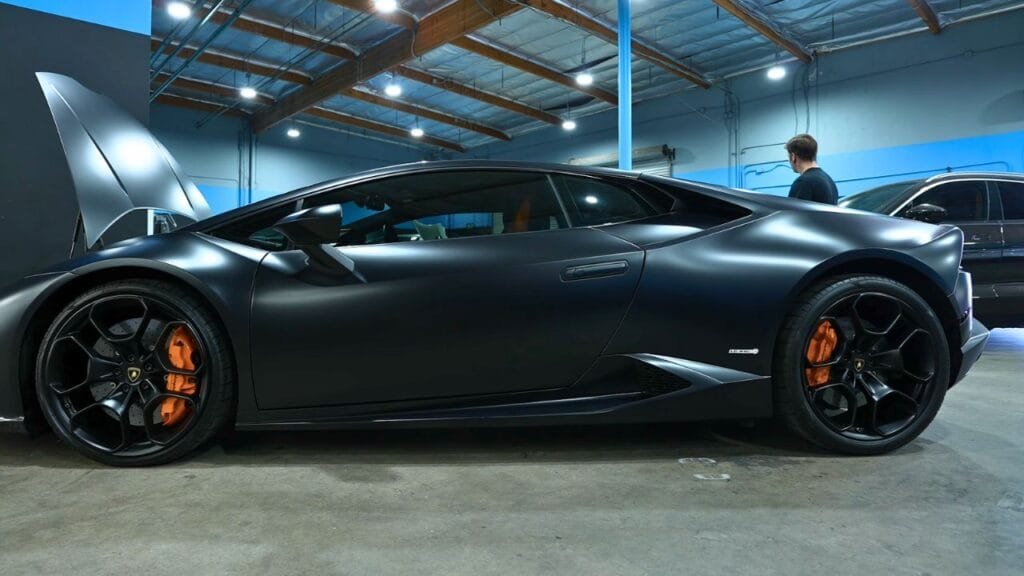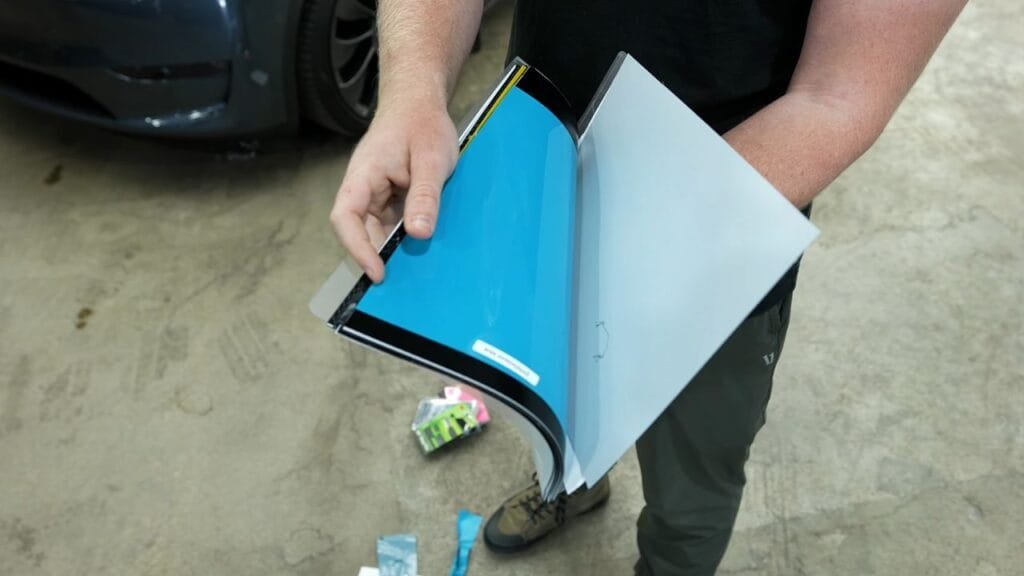Wrapping a car has become a popular alternative to painting for those looking to customize their vehicle’s appearance or add a layer of protection to the original paint. The cost of wrapping a car can vary significantly based on several factors, such as the type of wrap material, the size of the vehicle, and the complexity of the installation. This article explores all the key elements that influence the price of a car wrap and helps you make an informed decision.
What is a Car Wrap?

A car wrap involves applying a vinyl film to the exterior of the vehicle, covering the paint and giving it a new look. Car wraps are available in a wide range of colors and finishes, including matte, gloss, satin, metallic, and custom designs. Besides aesthetic appeal, some wraps offer protection against minor scratches and UV rays, although they are primarily used for cosmetic purposes.
There are two main types of wraps:
- Vinyl Wrap: Used for color changes and designs.
- Paint Protection Film (PPF): Designed to protect the vehicle’s paint from damage like rock chips and scratches, with some types offering aesthetic finishes as well.
Factors That Affect the Cost of a Car Wrap

1. Size of the Vehicle
The size of your vehicle plays a major role in determining the cost of a wrap. Larger vehicles like SUVs, trucks, or vans require more material and time to wrap, which increases the overall price.
- Small Cars (e.g., sedans, hatchbacks): $1,500 – $3,500.
- Medium Cars (e.g., crossovers, mid-sized SUVs): $2,000 – $4,500.
- Large Vehicles (e.g., large SUVs, trucks, vans): $3,500 – $6,000 or more.
2. Type of Vinyl Wrap
The type of vinyl wrap you choose can greatly impact the cost. Basic gloss or satin finishes tend to be the most affordable, while specialty wraps (e.g., chrome, carbon fiber, brushed metal) are more expensive due to the cost of materials and the complexity of the application.
- Gloss and Satin Vinyl Wraps: $1,500 – $3,500 for a full vehicle wrap.
- Specialty Vinyl Wraps (e.g., metallic, chrome, brushed): $2,500 – $5,500.
3. Paint Protection Film (PPF)
If your goal is to protect your vehicle from physical damage like scratches, rock chips, and road debris, PPF is a more robust option. PPF is thicker and designed to provide superior protection compared to vinyl wraps. However, it is also more expensive.
- Partial PPF (front bumper, hood, mirrors): $1,500 – $2,500.
- Full Vehicle PPF Wrap: $5,500 – $8,500.
PPF is also available in different finishes, including gloss and satin, and some newer versions even offer color-changing features. While more expensive than vinyl wraps, PPF offers self-healing properties, which allow minor scratches to disappear with heat.
4. Customization and Branding
If you want a completely unique look for your vehicle, such as custom designs, branding, or graphics, the price will increase due to the additional design and labor involved. Custom vinyl wraps are popular for businesses that Paint Protection Film (PPF) offers superior defense against rock chips, road debris, scratches, and other physical damage. It also includes self-healing properties, meaning minor scratches will disappear when exposed to heat, making it a great long-term investment. PPF generally lasts up to 10 years, making it more durable than vinyl wraps, which last 2 to 7 years depending on conditions and maintenance.
While PPF comes at a higher initial cost, it can save money over time by reducing the need for paint repairs and protecting your car’s resale value.
Combining Both: Hybrid Approach
Some vehicle owners opt for a hybrid approach: using PPF for high-impact areas like the front bumper, hood, and side mirrors, and applying a vinyl wrap for aesthetic purposes on other parts of the car. This approach combines the best of both worlds, offering protection where it’s most needed while still allowing customization.
Additional Costs to Consider

1. Ceramic Coating
Adding a ceramic coating on top of your vinyl wrap or PPF can offer extra protection against UV rays, dirt, and water. Ceramic coatings also enhance the gloss and make cleaning easier, but this adds an additional cost of $800 to $1,500 depending on the size of the vehicle and the type of coating used.
2. Repair and Replacement
If sections of your wrap or PPF are damaged, you can repair or replace only those sections instead of redoing the entire vehicle. The cost of repairs typically ranges from $300 to $1,000 depending on the extent of the damage and whether you’re dealing with vinyl or PPF.
3. Wrap Removal
Removing a vinyl wrap or PPF is also an expense to keep in mind. While most wraps can be removed without damaging the original paint, it should be done professionally to avoid leaving adhesive residue. The cost for wrap removal ranges from $500 to $1,500, depending on the size of the vehicle and how long the wrap has been in place.
Pros of Car Wraps
- Color Flexibility: As mentioned, wraps let you switch colors easily without altering your car’s original paint. If you decide you want a new color, the wrap can be peeled off and replaced.
- Protection: While not as protective as PPF, vinyl wraps offer some degree of protection against minor scratches. Additionally, if any damage occurs, you can replace sections of the wrap without redoing the entire vehicle, unlike repainting.
- Hydrophobic Properties: Vinyl wraps, especially when paired with a ceramic coating, have hydrophobic properties. This means water (and dirt) will easily roll off, keeping your car cleaner for longer with less effort.
Cons of Car Wraps
However, it’s not all smooth sailing. Car wraps come with some drawbacks:
- Special Care Required: You can’t wash a wrapped car the same way you would with regular paint. Abrasive brushes or household detergents can damage the wrap, so you’ll need to use special cleaners and microfiber cloths.
- Car Wash Restrictions: Automatic car washes with bristles can severely damage the wrap, so hand washing is the way to go. However, as a pro, the hydrophobic properties of the wrap make it easier to clean.
- Regulations in Nigeria: If you’re in Nigeria, you need to inform both your insurance company and the police about the wrap. The insurance needs to know the car’s new color, and the police will want to see proper documentation in case your car is pulled over or stolen.
- Fuel Considerations: Be cautious when refueling—fuel spills can damage the wrap, causing discoloration. While you can replace damaged sections, it’s best to avoid spills in the first place.
- Sun Exposure: Prolonged exposure to sunlight can cause the vinyl to warp, fade, or discolor, especially in hot climates. Parking in the shade or using a car cover can mitigate this.
Final Considerations
While wrapping your car offers a lot of advantages—color flexibility, protection, and easier maintenance—there are some drawbacks you’ll need to keep in mind. If the original paint is bad or improperly applied, removing the wrap may damage it. Therefore, always ensure that the wrap is applied professionally by a trusted installer.


